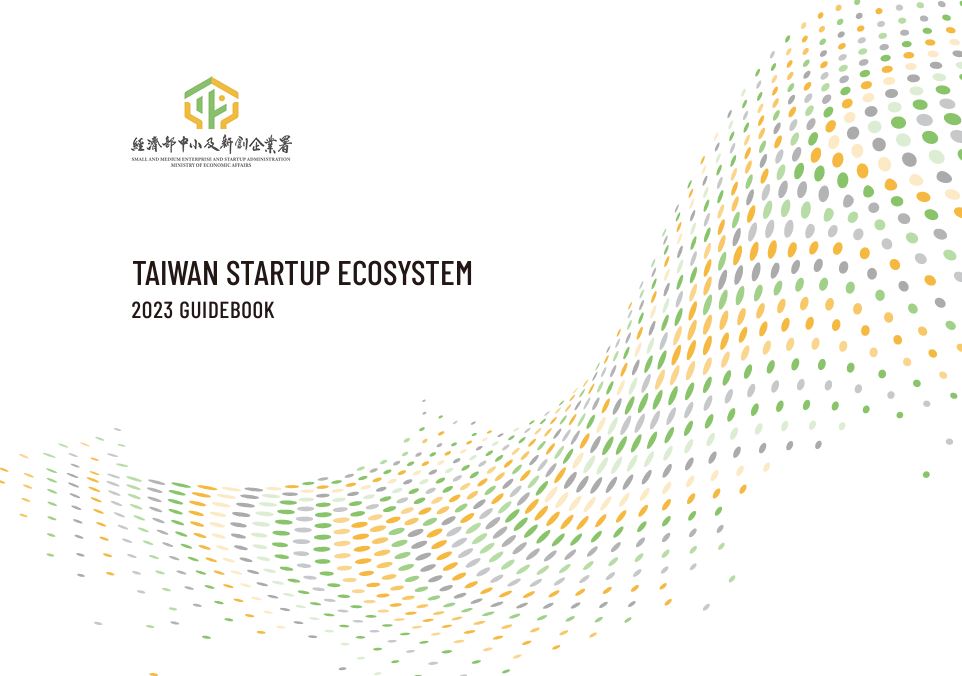TAIWAN STARTUP ECOSYSTEM 2O23 GUIDEBOOK

Entrepreneurship is a Global Issue
Innovation and entrepreneurship are pivotal drivers of Taiwan's industrial development and key economic issues of global significance. With the easing of the global pandemic and the alleviation of supply chain bottlenecks, countries worldwide are strategizing to rejuvenate their industrial economies. For many countries, this means enlivening the startup ecosystem through various strategic measures. For example, Japan introduced a five-year entrepreneurship development plan at the end of 2022 while in 2023, South Korea launched a comprehensive entrepreneurship policy. The United States designated 31 technology hubs (Tech Hubs) to foster regional startups and enhance competitiveness. Further, the G20 introduced the Startup20 strategy, encouraging member countries to foster and connect startup development and thereby stimulate global entrepreneurial ecosystem growth.
Over the years, various ministries have actively supported the development of startups, with innovation and entrepreneurship as key approaches to driving economic growth. To strengthen these efforts, entrepreneurship has become a vital part of policy planning via inspiration from international innovation and entrepreneurship support practices. Support for startups is now key among the responsibilities of the Small and Medium Enterprise and Startup Administration, Ministry of Economic Affairs, with the goals of accelerating the growth and transformation of small and medium-sized enterprises (SMEs), enhancing international competitiveness, and establishing solid partnerships with local and foreign enterprises.
Features and Resources
Taiwanese small and medium enterprises (SMEs) are known for their flexibility and resilience, and many have become “hidden champions” in the global supply chain. These enterprises often engage in external innovation by collaborating with startups and external teams and by integrating outside resources, ideas, and innovations to drive transformation and upgrading.
Startups in Taiwan are adept at incorporating digital technologies into their business models, leveraging Artificial Intelligence (AI) and Big Data to assist traditional industries, service sectors, and cultural creative fields in digital transformation. Startups are also crucial for businesses looking to introduce innovative technologies, develop new products, and enter new markets.
To support the development of innovation and entrepreneurship, the government has been conducting foundational courses and activities in this area for many years. Assistance is provided at various stages of entrepreneurship, for example, through platforms such as the startup.sme.gov website and online universities, which enhance entrepreneurial skills. The government encourages large enterprises and industry alliances to invest in the startup ecosystem, funneling cross-sector resources into new ventures. Additionally, international-grade entrepreneurial clusters like Linkou and Yawan Startup Terraces were established to attract more international startups. These initiatives, alongside innovation research grants and supply chain integration, aim to enhance the innovation value of industries.
Coordination and Collaboration
Developments in emerging technologies such as generative AI, sustainable fuels, sustainable computing, flexible soft batteries, and sensors, are driving changes in industries like biotechnology, pharmaceuticals, aviation, shipping, and agriculture. The entrepreneurial projects of these startups are diverse, often involving cross-industry and emerging domain issues. These startups face various entry barriers, including financial, regulatory, and experimental challenges, thereby requiring support from sectors such as government, industry, academia, and research. This collaboration creates opportunities for cooperation.
To support economic growth and enhance competitiveness, government ministries must actively participate and offer support. Through inter-ministerial communication and coordination, emerging industry issues can be addressed, and industry barriers reduced. The development of startups requires the joint assistance of the government, incubation organizations, venture capitalists, and research centers. Let's work together to contribute to innovation and entrepreneurship.